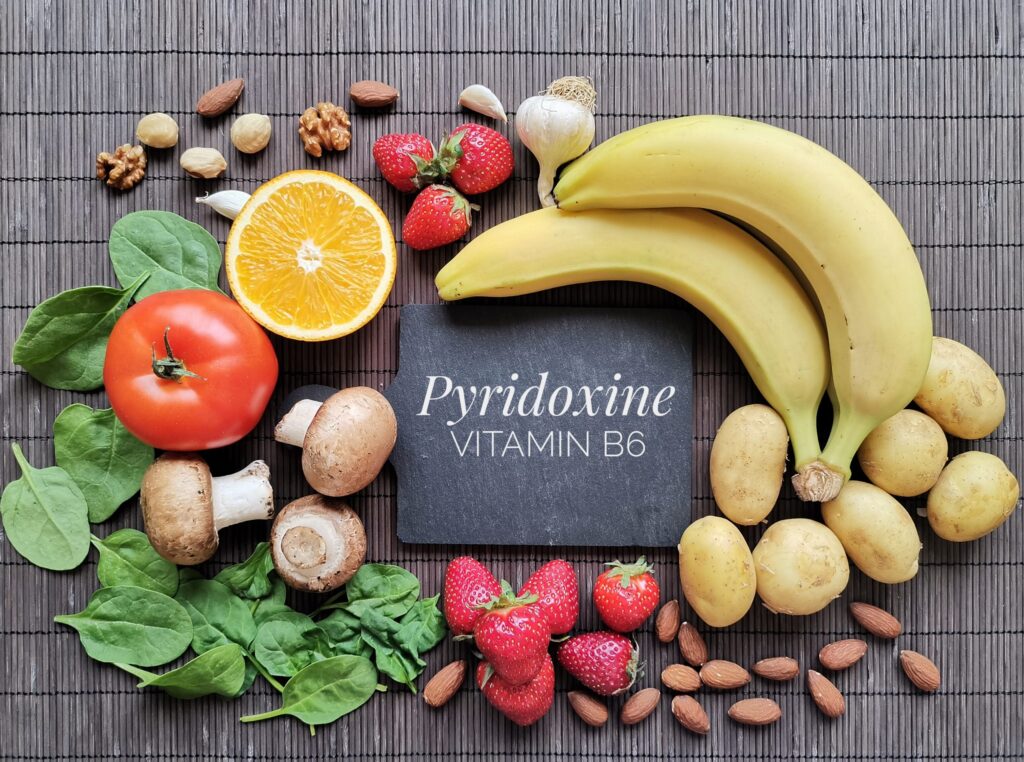
Are you tired of feeling sluggish and low on energy? Do you rely on caffeine or other stimulants to get through the day? If so, you might want to consider incorporating vitamins for energy into your daily routine. Vitamins are essential nutrients that play a critical role in many bodily functions, including energy production. In this article, we’ll explore the top energy vitamins and how you can incorporate them into your diet.
Table of Contents
How Vitamins Boost Energy
Vitamins are organic compounds that the body needs in small amounts to perform various functions. Many vitamins, such as B vitamins and vitamin C, play a crucial role in energy production. When you consume food, your body breaks it down into its constituent parts, including carbohydrates, proteins, and fats. These macronutrients are then used to produce energy in the form of adenosine triphosphate (ATP), which is the body’s primary source of energy. However, ATP cannot be produced without certain vitamins.
Common Vitamins For Boosting Energy

Source: outlookindia.com
There are several energy vitamins that are essential for ATP production. These include:
Vitamin B12
Vitamin B12 is one of the most important energy vitamins. It helps to convert food into energy by aiding in the production of red blood cells, which transport oxygen to the body’s cells. Without enough vitamin B12, you may experience fatigue and weakness, among other symptoms. Vitamin B12 is primarily found in animal products, such as meat, fish, and dairy. If you’re a vegetarian or vegan, you may need to take a supplement to get enough vitamin B12
Vitamin B6

Source: ugro.com
Vitamin B6 is another important energy vitamin. It helps the body to convert food into glucose, which is used to produce ATP. Additionally, vitamin B6 is involved in the production of neurotransmitters, such as serotonin and dopamine, which play a role in mood regulation and energy levels. Vitamin B6 is found in a variety of foods, including poultry, fish, potatoes, and bananas.
Vitamin C
Vitamin C is not typically thought of as an energy vitamin, but it can play an important role in energy production. Vitamin C helps to convert fat into energy, which can be especially helpful during exercise. Additionally, vitamin C is a powerful antioxidant that can help to protect the body from damage caused by free radicals. Vitamin C is found in many fruits and vegetables, including citrus fruits, strawberries, kiwi, bell peppers, and broccoli.
Vitamin D
Vitamin D is another important energy vitamin. It helps the body to absorb calcium, which is necessary for muscle contraction and nerve function. Without enough vitamin D, you may experience muscle weakness and fatigue. Vitamin D is found in fatty fish, such as salmon and tuna, as well as in fortified foods like milk and cereal.
How To Incorporate Vitamins Into Your Daily Routine

Source: everydayhealth.com
If you’re not getting enough energy vitamins from your diet, you may want to consider taking a supplement. However, it’s important to consult with a healthcare professional before starting any new supplement regimen.
In addition to supplements, there are many other ways to incorporate energy-boosting vitamins into your daily routine. For example:
- Eat a balanced diet that includes plenty of fruits, vegetables, and lean protein sources.
- Get enough sun exposure to help your body produce vitamin D. Aim for about 15-20 minutes of sun exposure each day, without sunscreen.
- Consider incorporating vitamin-rich foods into your meals and snacks. For example, add a handful of spinach to your morning smoothie for a boost of vitamin B6, or snack on sliced bell peppers with hummus for a dose of vitamin C.
- Drink plenty of water throughout the day to stay hydrated. Dehydration can lead to fatigue and decreased energy levels.
Other Lifestyle Habits To Boost Energy

Source: prevention.com
While vitamins are an important part of maintaining energy levels, they are not the only factor. There are several other lifestyle habits that can help to boost your energy levels, including:
- Regular exercise – Exercise has been shown to increase energy levels and reduce fatigue. Aim to get at least 30 minutes of moderate-intensity exercise most days of the week.
- Getting enough sleep – Sleep is essential for energy and productivity. Aim for 7-9 hours of sleep each night, and establish a consistent sleep schedule to promote quality sleep.
- Managing stress – Chronic stress can lead to fatigue and burnout. Consider incorporating stress-reducing activities into your daily routine, such as meditation or yoga.
In conclusion, vitamins play an essential role in energy production, and getting enough of these energy vitamins is crucial for maintaining optimal energy levels. If you’re feeling tired and sluggish, consider incorporating vitamin-rich foods into your diet, or taking a supplement if necessary. Additionally, make sure to practice other healthy habits, such as regular exercise and sufficient sleep, to promote optimal energy levels. With the right combination of vitamins and lifestyle habits, you can say goodbye to fatigue and hello to sustained energy and productivity.







